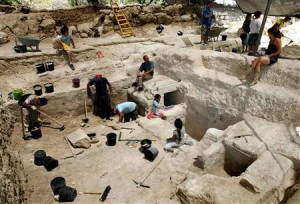 On September 1, 1539, John Calvin countered the Roman Catholic apologetics of his day with his letter to Cardinal Sadoleto.
On September 1, 1539, John Calvin countered the Roman Catholic apologetics of his day with his letter to Cardinal Sadoleto.
Concerning the doctrine of justification by faith alone Calvin writes:
You, in the first place, touch upon justification by faith, the first and keenest subject of controversy between us. Is this a knotty and useless question? Wherever the knowledge of it is taken away, the glory of Christ is extinguished, religion abolished, the Church destroyed, and the hope of salvation utterly overthrown. That doctrine, then, though of the highest moment, we maintain that you have nefariously effaced from the memory of men. Our books are filled with convincing proofs of this fact, and the gross ignorance of this doctrine, which even still continues in all your churches, declares that our complaint is by no means ill founded. But you very maliciously stir up prejudice against us, alleging that, by attributing every thing to faith, we leave no room for works.
I will not now enter upon a full discussion, which would require a large volume; but if you would look into the Catechism which I myself drew up for the Genevans, when I held the office of Pastor among them, three words would silence you. Here, however, I will briefly explain to you how we speak on this subject.
First, We bid a man begin by examining himself, and this not in a superficial and perfunctory manner, but to sift his conscience before the tribunal of God, and when sufficiently convinced of his iniquity, to reflect on the strictness of the sentence pronounced upon all sinners. Thus confounded and amazed at his misery, he is prostrated and humbled before God; and, casting away all self-confidence, groans as if given up to final perdition. Then we show that the only haven of safety is in the mercy of God, as manifested in Christ, in whom every part of our salvation is complete. As all mankind are, in the sight of God, lost sinners, we hold that Christ is their only righteousness, since, by his obedience, he has wiped off our transgressions; by his sacrifice, appeased the divine anger; by his blood, washed away our stains; by his cross, borne our curse; and by his death, made satisfaction for us. We maintain that in this way man is reconciled in Christ to God the Father, by no merit of his own, by no value of works, but by gratuitous mercy. When we embrace Christ by faith, and come, as it were, into communion with him, this we term, after the manner of Scripture, the righteousness of faith.
Continue reading →
 Highlights of recent archeaological finds include:
Highlights of recent archeaological finds include:
 I just received this note of encouragement from someone who read but somehow managed to hold on by a thread. As I read the verse 1 Timothy I came across this Scripture and decided to Google for some insight. I randomly came across your page, and was deeply touched and given me so much motivation and I feel like God directed me here so that He could speak through you. All I got to say is thank you for taking the time to write this because it has more meaning to me than you could imagine.” – Jane
I just received this note of encouragement from someone who read but somehow managed to hold on by a thread. As I read the verse 1 Timothy I came across this Scripture and decided to Google for some insight. I randomly came across your page, and was deeply touched and given me so much motivation and I feel like God directed me here so that He could speak through you. All I got to say is thank you for taking the time to write this because it has more meaning to me than you could imagine.” – Jane On September 1, 1539, John Calvin countered the Roman Catholic apologetics of his day with his letter to Cardinal Sadoleto.
On September 1, 1539, John Calvin countered the Roman Catholic apologetics of his day with his letter to Cardinal Sadoleto.